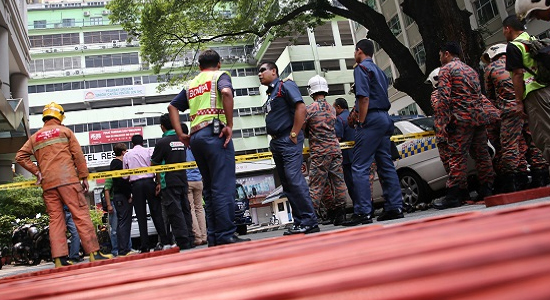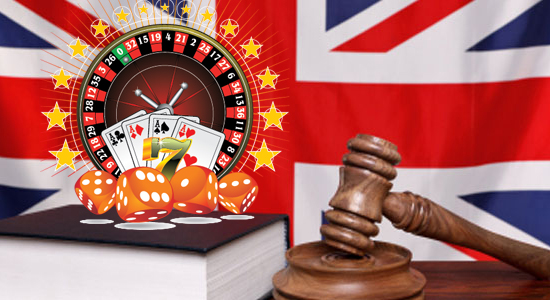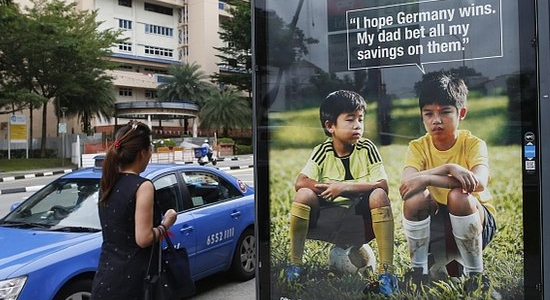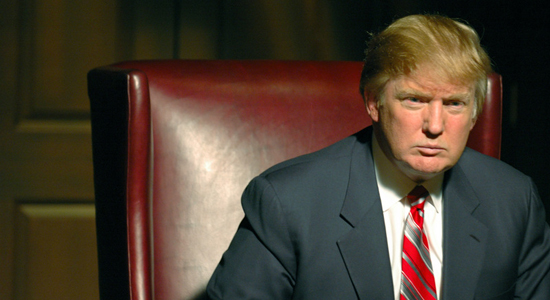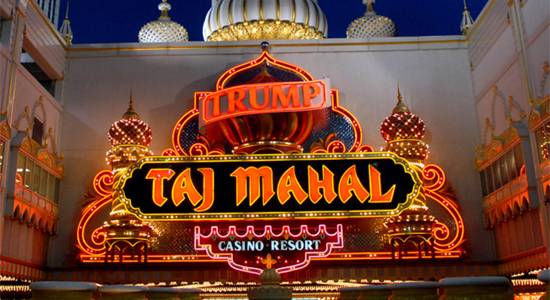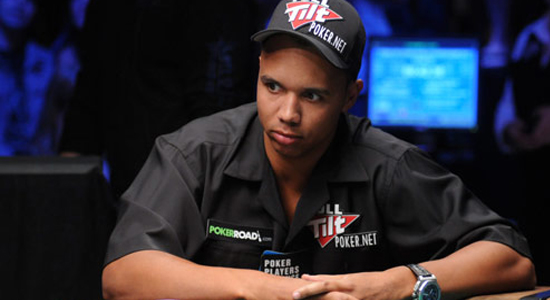TOP STORIES
Police Looking for Gambling Ring Leader Tied to Bukit Bintang Incident
Police are still investigating the details of the explosion that shook Kuala Lumpur last week.
Authorities are now looking for a man who goes by the name Ah Hai, a gambling kingpin said to be the leader of one of the biggest illegal gambling syndicates in Malaysia. Police officers indicated the incident was linked to “an underworld tussle”, and they believe Ah Hai was the main target of the blast.
Police said the 53-year-old man was involved in another incident earlier in August, when he was arrested for threatening an officer with a gun. Ah Hai is also known to be a gangster, a former drug dealer and assistant to a secret society leader.
Online gambling news have reported that investigators have spoken to some of the victims, as well as other witnesses, but haven’t made any arrests yet.
The Star: Six Bukit Bintang nightspots raided as hunt for ‘Ah Hai’ continues
Six nightclubs in Bukit Bintang have been raided as police officers continue their search for “Ah Hai”, the suspected target in the grenade attack at Sun Complex. According to CID chief Senior Asst Comm Gan Kong Meng, police conducted raids on six outlets over the weekend, on Saturday and Sunday.
“We raided three outlets and checked a total of 405 people and arrested two people for allowing underaged individuals into an entertainment outlet and opening an entertainment outlet past the stipulated closing time,” he told reporters.
“Bukit Aman personnel including a Special Task Force on Organized Crime (STAFOC) team raided three other outlets and checked 215 people and rescued three Vietnamese women under the Anti-Trafficking in Persons and Anti-Smuggling of Migrants Act.
“The three are believed to have been exploited for sex,” he added.
The Straits Times: Bukit Bintang blast: Kuala Lumpur police on the hunt for gambling kingpin
Malaysian police are looking for “Ah Hai”, the gambling kingpin and reported target of the grenade attack that took place in a shopping district in Kuala Lumpur. One man died and 12 were injured in the hit attempt at the center.
Investigators heard statements from the victims and believe the attack was carried out by two men. No arrests have been made so far. Police chief Tajuddin Md Isa said “Ah Hai” could be a crucial witness. The man was allegedly involved in a case in Sentul, in August, when he was charged with aiming a gun at a policeman.
“Ah Hai” is a gang leader who broke gambling laws by running an illegal online casino. His business grew to become one of the largest underground betting syndicates in Malaysia, and the media wrote he was even working with a former police officer as his right-hand man.
“He may have angered rival gangs as he encroached into their territory when expanding his business ventures,” a source told The Star newspaper.
The blast took place in an area popular with tourists, and locals believe it came as a result of gangland turf wars. Two grenades were thrown at cars in front of the Cherry Blossom nightclub, a place “Ah Hai” visits at least twice a month. Newspapers reported he is part of Gang 21, one of the country’s largest organized groups of criminals.
Yahoo News: Cops on hunt for ‘Ah Hai’, target of Bukit Bintang bomb blast
The hunt for gambling overlord Ah Hai continues. Police disclosed that the 53-year-old man had pointed a gun at a police officer earlier in August, after being asked to provide his personal documents during a routine check in Sentul.
Ah Hai was arrested after the incident, but later he was released on police bail. A police source said the man was a “bold gangster”, who was once the personal assistant to Lik Gor, a notorious secret society leader known as The Boss of Golden Palace.
“We don’t think he has fled the country. I think he is laying low and we are exhausting all our sources to find him as he will be able to shed light into investigations,” city police chief DCP Datuk Tajuddin Md Isa told reporters.
Back in 2006, Ah Hai was suspected of being involved in one of the country’s largest illegal betting operations and was high on the wanted list. Police had previously arrested him under the Dangerous Drugs (Special Preventive Measures) Act 1985 for drug trafficking and possession.
The Malaysian Insider: Car jockey killed, 13 hurt in Jalan Bukit Bintang blast
A car jockey was killed and 13 others were injured in a blast in Jalan Bukit Bintang, Kuala Lumpur. A hand grenade exploded in front of a pub and police said Tiong Kwang Yie, a 36-year-old car jockey died in the incident.
“Police received a complaint at 4.25 am and sent a dispatch to the Cherry Blossom nightclub to ascertain the damage. Initial reports indicate that two hand grenades had been thrown from the second floor of a building,” Kuala Lumpur CID chief Senior Assistant Commissioner Gan Kong Meng told reporters.
Nine men and four women aged between 20 and 42, including nationals from Thailand, China and Singapore, were sent to the hospital after being injured in the blast.
“Initial investigations reveal that two hand grenades were thrown but only one exploded. Shrapnel from the hand grenade caused injuries to passers-by,” Gan explained.
Four vehicles were also damaged in the blast. The second hand grenade, which failed to explode, was found under one of the cars.
Police are still investigating the details of the explosion that shook Kuala Lumpur last week.
Authorities are now looking for a man who goes by the name Ah Hai, a gambling kingpin said to be the leader of one of the biggest illegal gambling syndicates in Malaysia. Police officers indicated the incident was linked to “an underworld tussle”, and they believe Ah Hai was the main target of the blast.
Police said the 53-year-old man was involved in another incident earlier in August, when he was arrested for threatening an officer with a gun. Ah Hai is also known to be a gangster, a former drug dealer and assistant to a secret society leader.
Online gambling news have reported that investigators have spoken to some of the victims, as well as other witnesses, but haven’t made any arrests yet.
The Star: Six Bukit Bintang nightspots raided as hunt for ‘Ah Hai’ continues
Six nightclubs in Bukit Bintang have been raided as police officers continue their search for “Ah Hai”, the suspected target in the grenade attack at Sun Complex. According to CID chief Senior Asst Comm Gan Kong Meng, police conducted raids on six outlets over the weekend, on Saturday and Sunday.
“We raided three outlets and checked a total of 405 people and arrested two people for allowing underaged individuals into an entertainment outlet and opening an entertainment outlet past the stipulated closing time,” he told reporters.
“Bukit Aman personnel including a Special Task Force on Organized Crime (STAFOC) team raided three other outlets and checked 215 people and rescued three Vietnamese women under the Anti-Trafficking in Persons and Anti-Smuggling of Migrants Act.
“The three are believed to have been exploited for sex,” he added.
The Straits Times: Bukit Bintang blast: Kuala Lumpur police on the hunt for gambling kingpin
Malaysian police are looking for “Ah Hai”, the gambling kingpin and reported target of the grenade attack that took place in a shopping district in Kuala Lumpur. One man died and 12 were injured in the hit attempt at the center.
Investigators heard statements from the victims and believe the attack was carried out by two men. No arrests have been made so far. Police chief Tajuddin Md Isa said “Ah Hai” could be a crucial witness. The man was allegedly involved in a case in Sentul, in August, when he was charged with aiming a gun at a policeman.
“Ah Hai” is a gang leader who broke gambling laws by running an illegal online casino. His business grew to become one of the largest underground betting syndicates in Malaysia, and the media wrote he was even working with a former police officer as his right-hand man.
“He may have angered rival gangs as he encroached into their territory when expanding his business ventures,” a source told The Star newspaper.
The blast took place in an area popular with tourists, and locals believe it came as a result of gangland turf wars. Two grenades were thrown at cars in front of the Cherry Blossom nightclub, a place “Ah Hai” visits at least twice a month. Newspapers reported he is part of Gang 21, one of the country’s largest organized groups of criminals.
Yahoo News: Cops on hunt for ‘Ah Hai’, target of Bukit Bintang bomb blast
The hunt for gambling overlord Ah Hai continues. Police disclosed that the 53-year-old man had pointed a gun at a police officer earlier in August, after being asked to provide his personal documents during a routine check in Sentul.
Ah Hai was arrested after the incident, but later he was released on police bail. A police source said the man was a “bold gangster”, who was once the personal assistant to Lik Gor, a notorious secret society leader known as The Boss of Golden Palace.
“We don’t think he has fled the country. I think he is laying low and we are exhausting all our sources to find him as he will be able to shed light into investigations,” city police chief DCP Datuk Tajuddin Md Isa told reporters.
Back in 2006, Ah Hai was suspected of being involved in one of the country’s largest illegal betting operations and was high on the wanted list. Police had previously arrested him under the Dangerous Drugs (Special Preventive Measures) Act 1985 for drug trafficking and possession.
The Malaysian Insider: Car jockey killed, 13 hurt in Jalan Bukit Bintang blast
A car jockey was killed and 13 others were injured in a blast in Jalan Bukit Bintang, Kuala Lumpur. A hand grenade exploded in front of a pub and police said Tiong Kwang Yie, a 36-year-old car jockey died in the incident.
“Police received a complaint at 4.25 am and sent a dispatch to the Cherry Blossom nightclub to ascertain the damage. Initial reports indicate that two hand grenades had been thrown from the second floor of a building,” Kuala Lumpur CID chief Senior Assistant Commissioner Gan Kong Meng told reporters.
Nine men and four women aged between 20 and 42, including nationals from Thailand, China and Singapore, were sent to the hospital after being injured in the blast.
“Initial investigations reveal that two hand grenades were thrown but only one exploded. Shrapnel from the hand grenade caused injuries to passers-by,” Gan explained.
Four vehicles were also damaged in the blast. The second hand grenade, which failed to explode, was found under one of the cars.
Despite Bookmakers’ Objections, Judge Allows New UK Gambling Laws
The UK Government will move forward with its plan to tax remote gambling companies who cater to British players.
The court has given the British Government the green light to implement its new gambling laws. The decision comes after the Gibraltar Betting and Gaming Association challenged the government’s new licensing and taxation policies in court, hoping to receive approval to continue catering to British players remotely, without actually paying taxes in the UK.
For several years now, top gambling operators – including big names like William Hill, Ladbrokes or bet365 – have been running their online casinos and betting services from places like Gibraltar, Malta or Isle of Man. These offshore jurisdictions have much lower taxes than the UK, allowing gambling companies to pocket millions of pounds that would normally go to the British government.
The industry has been preparing for the big tax change, which is expected to cost it around GBP300 million a year, but the move has also caused share prices to drop. British bookmaker William Hill saw its shares fall 3.3%, while Ladbrokes shares dropped more than 4% following the court’s decision.
Reuters: RPT- Court clears Britain to take tighter control of online gambling
In order to tighten controls on the online betting industry, the British Government will require all internet gambling companies to obtain a license from the UK Gambling Commission before providing their services on the local market.
With the new license comes an additional 15% tax on online profits made from bets placed by UK-based customers, which is scheduled to come into force on December 1. As of March 2015, bookmakers will also pay 20 to 25% more on lucrative high stakes gambling machines. It is estimated that this tax increase will cost betting companies around GBP75 million a year.
As for the new gambling act, officials had initially set the deadline for October 1, but were forced to postpone the measures until November 1 after the Gibraltar Betting and Gaming Association (GBGA) challenged them in court, claiming they contravened European laws guaranteeing free movement of services.
Judge Nicholas Green dismissed the appeal on Friday, saying: “Parliament was clearly within its rights to act as it did.”
“We remain concerned the UK regulator will find it difficult to hold companies to account in jurisdictions outside of the EU where it has no legal powers and common legal framework or culture,” the GBGA wrote in a statement.
Critics argue that the new regulations will result in unlicensed operators offering better odds on sports scores, thus encouraging gamblers to turn to illegal websites, which offer no consumer protection.
GBGA: “Unlawful’” Gambling Law Poses “New Danger” for Consumers
Earlier in June, the Gibraltar Betting and Gaming Association (GBGA) raised a few issues regarding the Gambling (Licensing and Advertising) Act 2014, labeling it as “unlawful”, and claiming that it “threatens the safety of consumers online.”
The new regime will require the UK Gambling Commission to police the online industry worldwide, which will be very difficult. GBGA chief Peter Howitt believes that the new law, combined with planned tax changes, will cause local players to migrate to the unregulated market.
“This is bad for UK consumers, bad for the regulated industry, bad for Gibraltar and is in breach of European law, but fantastic news for operators who choose to avoid proper regulation,” he said in a statement.
“We know of no precedent where any regulator in any industry will be granted the role of licensing and regulating operators all over the world in this way, threatening to criminalize companies and people who fail to submit to its regime. This is plainly unworkable.”
In addition to being “unlawful” and “unworkable”, the new law is also “unnecessary”, the association said. Gibraltar has one of the world’s most effective regulatory regimes and would continue to be responsible for its gambling industry, but it would also have to share information with the UK regulator on a formal basis.
In a statement released by the GBGA, the association’s lawyers added: “All this Act achieves is a wholly unjustified, disproportionate and discriminatory interference with the right to free movement of services, a right enshrined in European Law.”
Gaming Intelligence: Pinnacle Sports to shut down UK operations
Curaçao-licensed betting operator Pinnacle Sports announced that it will withdraw from the UK market. The company decided to stop catering to British players after the Government announced it was introducing tighter regulations under the Gambling (Licensing and Advertising) Act 2014.
At the beginning of September, the company sent a notification to all its customers, announcing it will shut down its UK operations from September 30th. Apart from withdrawals, all account functions have been disabled starting September 30. The restriction applies to subscribers who have listed UK as their place of residence, in their account details.
“Amendments to the Gambling (Licensing and Advertising) Act come into force on October 1st, 2014 requiring all companies that advertise or provide gambling services to British residents to obtain a license from the British Gambling Commission,” the betting operator explained in a statement.
Pinnacle is just one of the many online gambling operators who chose to withdraw from the British market due to the 15% point of consumption tax. The list also includes SBOBet and 12BET, both licensed in Isle of Man, and Gibraltar-based Mansion casino.
The UK Government will move forward with its plan to tax remote gambling companies who cater to British players.
The court has given the British Government the green light to implement its new gambling laws. The decision comes after the Gibraltar Betting and Gaming Association challenged the government’s new licensing and taxation policies in court, hoping to receive approval to continue catering to British players remotely, without actually paying taxes in the UK.
For several years now, top gambling operators – including big names like William Hill, Ladbrokes or bet365 – have been running their online casinos and betting services from places like Gibraltar, Malta or Isle of Man. These offshore jurisdictions have much lower taxes than the UK, allowing gambling companies to pocket millions of pounds that would normally go to the British government.
The industry has been preparing for the big tax change, which is expected to cost it around GBP300 million a year, but the move has also caused share prices to drop. British bookmaker William Hill saw its shares fall 3.3%, while Ladbrokes shares dropped more than 4% following the court’s decision.
Reuters: RPT- Court clears Britain to take tighter control of online gambling
In order to tighten controls on the online betting industry, the British Government will require all internet gambling companies to obtain a license from the UK Gambling Commission before providing their services on the local market.
With the new license comes an additional 15% tax on online profits made from bets placed by UK-based customers, which is scheduled to come into force on December 1. As of March 2015, bookmakers will also pay 20 to 25% more on lucrative high stakes gambling machines. It is estimated that this tax increase will cost betting companies around GBP75 million a year.
As for the new gambling act, officials had initially set the deadline for October 1, but were forced to postpone the measures until November 1 after the Gibraltar Betting and Gaming Association (GBGA) challenged them in court, claiming they contravened European laws guaranteeing free movement of services.
Judge Nicholas Green dismissed the appeal on Friday, saying: “Parliament was clearly within its rights to act as it did.”
“We remain concerned the UK regulator will find it difficult to hold companies to account in jurisdictions outside of the EU where it has no legal powers and common legal framework or culture,” the GBGA wrote in a statement.
Critics argue that the new regulations will result in unlicensed operators offering better odds on sports scores, thus encouraging gamblers to turn to illegal websites, which offer no consumer protection.
GBGA: “Unlawful’” Gambling Law Poses “New Danger” for Consumers
Earlier in June, the Gibraltar Betting and Gaming Association (GBGA) raised a few issues regarding the Gambling (Licensing and Advertising) Act 2014, labeling it as “unlawful”, and claiming that it “threatens the safety of consumers online.”
The new regime will require the UK Gambling Commission to police the online industry worldwide, which will be very difficult. GBGA chief Peter Howitt believes that the new law, combined with planned tax changes, will cause local players to migrate to the unregulated market.
“This is bad for UK consumers, bad for the regulated industry, bad for Gibraltar and is in breach of European law, but fantastic news for operators who choose to avoid proper regulation,” he said in a statement.
“We know of no precedent where any regulator in any industry will be granted the role of licensing and regulating operators all over the world in this way, threatening to criminalize companies and people who fail to submit to its regime. This is plainly unworkable.”
In addition to being “unlawful” and “unworkable”, the new law is also “unnecessary”, the association said. Gibraltar has one of the world’s most effective regulatory regimes and would continue to be responsible for its gambling industry, but it would also have to share information with the UK regulator on a formal basis.
In a statement released by the GBGA, the association’s lawyers added: “All this Act achieves is a wholly unjustified, disproportionate and discriminatory interference with the right to free movement of services, a right enshrined in European Law.”
Gaming Intelligence: Pinnacle Sports to shut down UK operations
Curaçao-licensed betting operator Pinnacle Sports announced that it will withdraw from the UK market. The company decided to stop catering to British players after the Government announced it was introducing tighter regulations under the Gambling (Licensing and Advertising) Act 2014.
At the beginning of September, the company sent a notification to all its customers, announcing it will shut down its UK operations from September 30th. Apart from withdrawals, all account functions have been disabled starting September 30. The restriction applies to subscribers who have listed UK as their place of residence, in their account details.
“Amendments to the Gambling (Licensing and Advertising) Act come into force on October 1st, 2014 requiring all companies that advertise or provide gambling services to British residents to obtain a license from the British Gambling Commission,” the betting operator explained in a statement.
Pinnacle is just one of the many online gambling operators who chose to withdraw from the British market due to the 15% point of consumption tax. The list also includes SBOBet and 12BET, both licensed in Isle of Man, and Gibraltar-based Mansion casino.
Czech Officials Propose Stricter Gambling Laws, but Welcome Foreign Operators
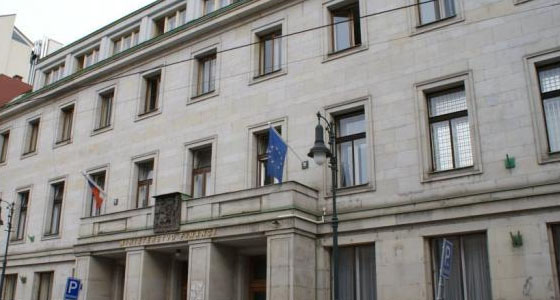
Czech authorities want to introduce a new ruled for the gambling industry, seeking to tighten regulations and lift tax revenue.
Gamblers living in the Czech Republic spend more than $6 billion every year, making the local market profitable enough to spark the interest of some of the largest online gambling firms out there.
There are currently five companies dominating the Czech betting market, including Prague-listed Fortuna Entertainment, but the industry has grown over the past few years and officials believe the country is ready to open itself to foreign operators.
Under the current regulations, foreign-based online betting firms cannot provide services in the Czech Republic unless they have a physical presence in the country. In other words, they would need to obtain a license and open land-based betting shops before going live.
But now the Finance Ministry said they should be allowed to operate in the country under new gambling laws, and of course taxed accordingly.
Reuters: Czechs look to boost tax revenue with revamped gambling law
Under the current regulations, gamblers who access foreign websites risk steep fines. Betting companies that don’t hold a license in the country are not allowed to advertise their products here. But the Czech Republic has a population of 10.5 million, and the local gambling market has a lot of potential for growth.
For a while now, betting companies have been complaining about all the inconsistencies in regulation and tax policies practiced across different states of the European Union. Many operators prefer to avoid countries where regulations aren’t clearly defined, and the Czech Republic was certainly not a main hub for foreign-based operators.
But the new proposal would change the current laws to allow remote betting groups, provided that they register their operations and pay taxes to the local government. The new tax rates are expected to be finalized by the end of the year.
“Users currently bet abroad, which several foreign companies make easier by introducing sites in Czech. According to our estimates, the state misses out on more than 1 billion crowns a year in this segment,” Deputy Finance Minister Ondrej Zavodsky said.
Before going into effect, the ministry’s proposal would have to go through government consultations. The law would most likely be applicable in 2016.
Prague Post: Ministry wants to ban gambling machines in pubs, gas stations
Authorities intend to ban gambling machines from pubs, bars and gas stations located across the Czech Republic. Deputy Finance Minister Ondřej Závodský told reporters that betting offices, casinos and gambling rooms will still be legal, but a registry of gamblers and a central monitoring system will be established, to track their activity.
According to online gambling news, these gambling machines are the most harmful for problem gamblers and vulnerable players. When the new regulations come into force, the customs administration will be the new authority responsible for giving permission for new machines, instead of the Finance Ministry.
Ultimately, municipalities will have the final say when establishing the locations where operators will be allowed to open new businesses. They will also have the authority to ban this type of gambling in the area. The ministry’s only role will be to supervise the gambling industry in general.
Another measure proposed in the bill requires that the number of gambling rooms and casinos be decided according to the number of inhabitants in each region. For example, municipalities with fewer than 5,000 inhabitants will only be allowed to have one gambling room. Casinos will only be allowed to open in areas with more than 40,000 inhabitants.
The new bill is expected to be presented by the end of the year. It will also include information on new gambling fees and taxes.
Czech.cz: New bill to introduce strict gambling regulation
Finance Minister Andrej Babiš has unveiled details about the new gambling regulations proposed in the Czech Republic. Under the new laws, slot machines would be banned from pubs and bars, and moved to casinos or specialized venues. They would also have betting limits.
There are around 100,000 gambling addicts in the country; the government spends an estimated 15 billion crowns per year in health care and welfare. Several municipalities have already taken steps to ban or restrict gambling on a local level.
“The draft legislation addresses all negative impacts of gambling on the society which have been estimated at 15 billion crowns every year,” Finance Minister Andrej Babiš told reporters. “But there is more – hundreds of suicides, broken-up families, and so on. The draft should enter into force in January 2016 which gives us enough time for a proper debate and I firmly believe the bill will be approved.”
The ministry also intends to set up a central monitoring system to control gambling operations in real time. Additionally, gamblers and punters would have to register in a database, which will then be connected to other registries, such as the databases showing welfare recipients.
“We would also like to introduce principles of responsible gambling, establishing maximum hourly and monthly bet limits. On top of that, we want to prevent certain groups of people from gambling. These include gambling addicts undergoing treatment or those who owe money either to their families or to the state,” Babiš added.
The draft legislation will most likely go into force in January 2016.


Czech authorities want to introduce a new ruled for the gambling industry, seeking to tighten regulations and lift tax revenue.
Gamblers living in the Czech Republic spend more than $6 billion every year, making the local market profitable enough to spark the interest of some of the largest online gambling firms out there.
There are currently five companies dominating the Czech betting market, including Prague-listed Fortuna Entertainment, but the industry has grown over the past few years and officials believe the country is ready to open itself to foreign operators.
Under the current regulations, foreign-based online betting firms cannot provide services in the Czech Republic unless they have a physical presence in the country. In other words, they would need to obtain a license and open land-based betting shops before going live.
But now the Finance Ministry said they should be allowed to operate in the country under new gambling laws, and of course taxed accordingly.
Reuters: Czechs look to boost tax revenue with revamped gambling law
Under the current regulations, gamblers who access foreign websites risk steep fines. Betting companies that don’t hold a license in the country are not allowed to advertise their products here. But the Czech Republic has a population of 10.5 million, and the local gambling market has a lot of potential for growth.
For a while now, betting companies have been complaining about all the inconsistencies in regulation and tax policies practiced across different states of the European Union. Many operators prefer to avoid countries where regulations aren’t clearly defined, and the Czech Republic was certainly not a main hub for foreign-based operators.
But the new proposal would change the current laws to allow remote betting groups, provided that they register their operations and pay taxes to the local government. The new tax rates are expected to be finalized by the end of the year.
“Users currently bet abroad, which several foreign companies make easier by introducing sites in Czech. According to our estimates, the state misses out on more than 1 billion crowns a year in this segment,” Deputy Finance Minister Ondrej Zavodsky said.
Before going into effect, the ministry’s proposal would have to go through government consultations. The law would most likely be applicable in 2016.
Prague Post: Ministry wants to ban gambling machines in pubs, gas stations
Authorities intend to ban gambling machines from pubs, bars and gas stations located across the Czech Republic. Deputy Finance Minister Ondřej Závodský told reporters that betting offices, casinos and gambling rooms will still be legal, but a registry of gamblers and a central monitoring system will be established, to track their activity.
According to online gambling news, these gambling machines are the most harmful for problem gamblers and vulnerable players. When the new regulations come into force, the customs administration will be the new authority responsible for giving permission for new machines, instead of the Finance Ministry.
Ultimately, municipalities will have the final say when establishing the locations where operators will be allowed to open new businesses. They will also have the authority to ban this type of gambling in the area. The ministry’s only role will be to supervise the gambling industry in general.
Another measure proposed in the bill requires that the number of gambling rooms and casinos be decided according to the number of inhabitants in each region. For example, municipalities with fewer than 5,000 inhabitants will only be allowed to have one gambling room. Casinos will only be allowed to open in areas with more than 40,000 inhabitants.
The new bill is expected to be presented by the end of the year. It will also include information on new gambling fees and taxes.
Czech.cz: New bill to introduce strict gambling regulation
Finance Minister Andrej Babiš has unveiled details about the new gambling regulations proposed in the Czech Republic. Under the new laws, slot machines would be banned from pubs and bars, and moved to casinos or specialized venues. They would also have betting limits.
There are around 100,000 gambling addicts in the country; the government spends an estimated 15 billion crowns per year in health care and welfare. Several municipalities have already taken steps to ban or restrict gambling on a local level.
“The draft legislation addresses all negative impacts of gambling on the society which have been estimated at 15 billion crowns every year,” Finance Minister Andrej Babiš told reporters. “But there is more – hundreds of suicides, broken-up families, and so on. The draft should enter into force in January 2016 which gives us enough time for a proper debate and I firmly believe the bill will be approved.”
The ministry also intends to set up a central monitoring system to control gambling operations in real time. Additionally, gamblers and punters would have to register in a database, which will then be connected to other registries, such as the databases showing welfare recipients.
“We would also like to introduce principles of responsible gambling, establishing maximum hourly and monthly bet limits. On top of that, we want to prevent certain groups of people from gambling. These include gambling addicts undergoing treatment or those who owe money either to their families or to the state,” Babiš added.
The draft legislation will most likely go into force in January 2016.

Boxer and Notorious Punter Floyd Mayweather Wins Two Major Bets

Pro boxer Floyd Mayweather flaunts his winnings on Instagram, after betting large amounts of money on the Seahawks and the Colts.
Floyd Mayweather is certainly one of the luckiest punters out there. The man has won $105 million over the past year by betting on sports scores. He began the week by adding almost $1 million to his total winnings, after placing a lot of money on the Seahawks and on the Colts.
The professional boxer took the opportunity to show off his latest winnings on social media after the Seattle Seahawks defeated the Washington Redskins 27-17 in a messy game with a total of 16 penalties. A photo of Mayweathear’s lucky betting ticket was posted on Instagram.
“I bet $220,000.00 on the World Champion Seattle Seahawks (Russell Wilson, Marshawn Lynch and Richard Sherman) and walked away with $420,000.00,” the boxer wrote.
CBS Sports: Floyd Mayweather wins $200K betting Seahawks on Monday night
Mayweather came dangerously close to losing this wager. If it hadn’t been for Russell Wilson’s ridiculous play, the boxer’s bet would have most likely ended up in a push, where he wouldn’t have won (nor lost) anything.
A late move pushed the score to 27-17 instead of 24-17, which wouldn’t have turned out so great for Mayweather. And the Seahawks got a late field goal after Wilson passed to Marshawn Lynch. This was the pass that helped the boxer win the wager.
A notorious punter well-known for betting huge amounts of money – and scoring even larger prizes – had also posted a betting slip proving that he won $685,714 by putting money on the Colts in Week 3. That wager happened three weeks ago, when the Colts played against the Jaguars.
Washington Post: Redskins-Seahawks best and worst
The Washington Post has compiled a “best and worst moments” article from the game on Monday night, where the Redskins lost 27-17 to the Seahawks at FedEx Field.
Among the best moments of the game, the newspaper highlighted the game-clincher in the fourth quarter, when Russell Wilson was pursued by three defenders and Washington’s running backs carried 15 times for 28 yards. Ryan Kerrigan is mentioned as best defender, and Kirk Cousins’ 60-yard pass to DeSean Jackson is said to be the best long pass play.
The worst record in prime time goes to the Redskins. Since Joe Gibbs retired the second time, the Redskins are 3-17 in prime-time games, the newspaper argues. It also mentions the team’s four losses as “worst stats”. That’s how many losses the Eagles, Cowboys and Giants have, combined.
There’s a “worst challenge success rate” award too, which goes out to Jay Gruden who is now 0 for 5 in challenges as an NFL head coach.
Daily News: Floyd Mayweather, Jr. earns $1.8 million betting on Colts, Seahawks
In other recent gambling news, Floyd Mayweather added another $1.8 million to his fortune, which is estimated at $280 million. The boxing champion placed a wager on the Indianapolis Colts and Seattle Seahawks to win by more than seven points and won.
“I bet $720,000.00 and I walked away with $1,405,714.28. When you’re betting on Andrew, it’s never Luck,” he wrote on Instagram, where he attached a photo of a ticket stub dated 9-21-14. That was the day when the Colts beat the Jacksonville Jaguars by 44-17.
Mayweather was recently mentioned among the top-earning athletes, on a list put together by Forbes Magazine. He made $105 million in his last two fights alone. The boxer never misses a chance to flaunt his wealthy lifestyle in public, and he usually does it through Instagram.
Those who follow him know that he frequently posts pictures of cash, although his favorite “prizes” often include expensive watches, cars or even women.
Independent: Super Bowl 2014: Floyd Mayweather denies placing $10.4m bet on the Denver Broncos after Seattle Seahawks crushing win
Back in February, it was rumored that Floyd Mayweather Jr had lost $10.4 million by betting on the Denver Broncos in an NFL match where the team was crushed by the Seattle Seahawks. The boxer later denied these rumors, claiming that ne never even put money on the Super Bowl match.
“For the record, I did not bet $10 million on the Broncos. As a matter of fact, I didn’t bet all,” he wrote on Instagram. “I can’t control what rumors that are put out there. Good or bad publicity keeps me relevant. The only thing I would bet $10 million on is myself. From the looks of my record, I’m a guaranteed win.”
During the previous week, pictures had emerged on social media websites showing that the athlete had placed a staggering amount of money on the Broncos. It was said that he had bet on the Peyton Manning-led team to win the season showcase.
It was then revealed that the picture had been originally posted in 2012. This information only supported Mayweather’s claims that no bet was ever made.


Pro boxer Floyd Mayweather flaunts his winnings on Instagram, after betting large amounts of money on the Seahawks and the Colts.
Floyd Mayweather is certainly one of the luckiest punters out there. The man has won $105 million over the past year by betting on sports scores. He began the week by adding almost $1 million to his total winnings, after placing a lot of money on the Seahawks and on the Colts.
The professional boxer took the opportunity to show off his latest winnings on social media after the Seattle Seahawks defeated the Washington Redskins 27-17 in a messy game with a total of 16 penalties. A photo of Mayweathear’s lucky betting ticket was posted on Instagram.
“I bet $220,000.00 on the World Champion Seattle Seahawks (Russell Wilson, Marshawn Lynch and Richard Sherman) and walked away with $420,000.00,” the boxer wrote.
CBS Sports: Floyd Mayweather wins $200K betting Seahawks on Monday night
Mayweather came dangerously close to losing this wager. If it hadn’t been for Russell Wilson’s ridiculous play, the boxer’s bet would have most likely ended up in a push, where he wouldn’t have won (nor lost) anything.
A late move pushed the score to 27-17 instead of 24-17, which wouldn’t have turned out so great for Mayweather. And the Seahawks got a late field goal after Wilson passed to Marshawn Lynch. This was the pass that helped the boxer win the wager.
A notorious punter well-known for betting huge amounts of money – and scoring even larger prizes – had also posted a betting slip proving that he won $685,714 by putting money on the Colts in Week 3. That wager happened three weeks ago, when the Colts played against the Jaguars.
Washington Post: Redskins-Seahawks best and worst
The Washington Post has compiled a “best and worst moments” article from the game on Monday night, where the Redskins lost 27-17 to the Seahawks at FedEx Field.
Among the best moments of the game, the newspaper highlighted the game-clincher in the fourth quarter, when Russell Wilson was pursued by three defenders and Washington’s running backs carried 15 times for 28 yards. Ryan Kerrigan is mentioned as best defender, and Kirk Cousins’ 60-yard pass to DeSean Jackson is said to be the best long pass play.
The worst record in prime time goes to the Redskins. Since Joe Gibbs retired the second time, the Redskins are 3-17 in prime-time games, the newspaper argues. It also mentions the team’s four losses as “worst stats”. That’s how many losses the Eagles, Cowboys and Giants have, combined.
There’s a “worst challenge success rate” award too, which goes out to Jay Gruden who is now 0 for 5 in challenges as an NFL head coach.
Daily News: Floyd Mayweather, Jr. earns $1.8 million betting on Colts, Seahawks
In other recent gambling news, Floyd Mayweather added another $1.8 million to his fortune, which is estimated at $280 million. The boxing champion placed a wager on the Indianapolis Colts and Seattle Seahawks to win by more than seven points and won.
“I bet $720,000.00 and I walked away with $1,405,714.28. When you’re betting on Andrew, it’s never Luck,” he wrote on Instagram, where he attached a photo of a ticket stub dated 9-21-14. That was the day when the Colts beat the Jacksonville Jaguars by 44-17.
Mayweather was recently mentioned among the top-earning athletes, on a list put together by Forbes Magazine. He made $105 million in his last two fights alone. The boxer never misses a chance to flaunt his wealthy lifestyle in public, and he usually does it through Instagram.
Those who follow him know that he frequently posts pictures of cash, although his favorite “prizes” often include expensive watches, cars or even women.
Independent: Super Bowl 2014: Floyd Mayweather denies placing $10.4m bet on the Denver Broncos after Seattle Seahawks crushing win
Back in February, it was rumored that Floyd Mayweather Jr had lost $10.4 million by betting on the Denver Broncos in an NFL match where the team was crushed by the Seattle Seahawks. The boxer later denied these rumors, claiming that ne never even put money on the Super Bowl match.
“For the record, I did not bet $10 million on the Broncos. As a matter of fact, I didn’t bet all,” he wrote on Instagram. “I can’t control what rumors that are put out there. Good or bad publicity keeps me relevant. The only thing I would bet $10 million on is myself. From the looks of my record, I’m a guaranteed win.”
During the previous week, pictures had emerged on social media websites showing that the athlete had placed a staggering amount of money on the Broncos. It was said that he had bet on the Peyton Manning-led team to win the season showcase.
It was then revealed that the picture had been originally posted in 2012. This information only supported Mayweather’s claims that no bet was ever made.

Tags: CBS Sports, Daily News, Denver Broncos, DeSean Jackson, FedEx Field, Floyd Mayweather, gambling news, Indianapolis Colts, Joe Gibbs, Kirk Cousins, Marshawn Lynch, NFL, Richard Sherman, Russell Wilson, Ryan Kerrigan, Seattle Seahawks, sports scores, Super Bowl, washington post, Washington Redskins
Ivey Not Entitled to His GBP7.7 Million in Winnings, Judge Rules
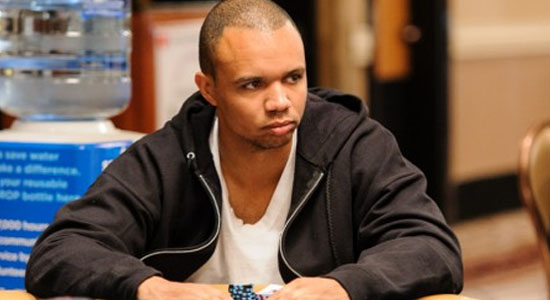
Ivey’s lawyers weren’t convincing enough when they argued that losing GBP7.7 million in just a few days was the casino’s “mistake”.
The court denied Phil Ivey his GBP7.7 million winnings, remained unpaid after a casino accused him of cheating to get the money. The professional poker player admitted he used a technique called “edge sorting” to win at the baccarat table, but claimed casino employees were negligent which means losing all that money was the company’s “mistake”.
After London’s Crockfords Club realized that Ivey had taken advantage of a flaw in the playing cards, the casino refused to pay out. Ivey sued the company to get his prize, but the latest gambling news announced he lost the case.
Irish Examiner: Poker player loses €9.7m casino challenge
The 38-year-old American poker pro won the money in august 2012, by playing Punto Banco, a version of baccarat. After four sessions where he won GBP7.7 million, the Mayfair casino returned his GBP1 million stake and said it would wire him the rest of the money. Phil Ivey returned to the US only to find that his money never arrived.
The Crockfords Club is owned by Genting Casinos UK, a gambling operator which has more than 40 casinos across the country. Company representatives said the technique used by Ivey was not a legitimate strategy, which is why they had no liability to him. Edge-sorting is used to give the player a “first card advantage”.
The lawyers who defended the casino said Ivey’s conduct defeated the essential premise of baccarat. Therefore, they argued, there was no gaming contract or cheating.
“Crockfords is pleased with the judgement of the High Court today supporting its defense of a claim by Mr Ivey,” a spokesman for the casino told reporters. “It is our policy not to discuss our clients’ affairs in public and we very much regret that proceedings were brought against us.”
Ivey said through a spokesman: “I am obviously disappointed with this judge’s decision. As I said in court, it is not my nature to cheat and I would never do anything to risk my reputation. I am pleased that the judge acknowledged in court that I was a truthful witness.”
The poker player’s lawyers were refused permission to appeal the decision. However, they can renew their application to the Court of Appeal directly.
London Evening Standard: Poker champion loses case against London casino over £7.7m winnings
Phil Ivey, who is known for his excellent poker results, said he would never jeopardize his reputation by cheating at a casino.
“We observe the unwritten doctrine: how do I find a legal way to beat the house? Any method that could amount to cheating would breach the doctrine and cause you to be ostracized by your fellow players – we are all very careful to stay the right side of the line and we discuss advantage play strategies at length,” he said.
“I believe that what we did was a legitimate strategy and we did nothing more than exploit Crockfords’ failures to take proper steps to protect themselves against a player of my ability. Clearly today the judge did not agree,” Ivey added.
His counsel Richard Spearman explained to the court that edge-sorting meant using information found on the backs of the cards and making certain requests during the game, in order to gain an advantage. Besides, the cards were chosen by the casino and staff could have refused Ivey’s requests at any time. The poker pro said his integrity was “infinitely more important than a big win”, and added that he sued the casino to prove that he was “unjustly treated”.
On the other hand, Christopher Pymont, who represented the casino, argued that the casino did not regard Ivey as an advantage player at that time. Instead, they thought of him as an old VIP customer who they could trust.
The Guardian: Top poker player Phil Ivey loses court battle over £7.7m winnings
The judge mentioned in his ruling that the case turned on whether Ivey cheated or not, adding that the poker player was not entitled to his winnings if the obtained them in an unfair manner.
“What Mr Ivey and Ms Sun did was to persuade the croupier to turn some of the cards in the dealing shoe to permit them to know that they were or were very likely to be sevens, eights or nines, and in circumstances where she did not realize she had done so – and, if she had, would have immediately stopped play,” the court ruling said.
The judge said Ivey did not just take advantage of a simple error, but did it by using the dealer “as his innocent agent or tool”. Furthermore, the judge added, the poker player was aware that neither the croupier, not her superiors knew what the consequences of her actions would be when she turned the cards around, as per his request.
“This is, in my view, cheating for the purpose of civil law,” the judge concluded before dismissing the case.

Ivey’s lawyers weren’t convincing enough when they argued that losing GBP7.7 million in just a few days was the casino’s “mistake”.
The court denied Phil Ivey his GBP7.7 million winnings, remained unpaid after a casino accused him of cheating to get the money. The professional poker player admitted he used a technique called “edge sorting” to win at the baccarat table, but claimed casino employees were negligent which means losing all that money was the company’s “mistake”.
After London’s Crockfords Club realized that Ivey had taken advantage of a flaw in the playing cards, the casino refused to pay out. Ivey sued the company to get his prize, but the latest gambling news announced he lost the case.
Irish Examiner: Poker player loses €9.7m casino challenge
The 38-year-old American poker pro won the money in august 2012, by playing Punto Banco, a version of baccarat. After four sessions where he won GBP7.7 million, the Mayfair casino returned his GBP1 million stake and said it would wire him the rest of the money. Phil Ivey returned to the US only to find that his money never arrived.
The Crockfords Club is owned by Genting Casinos UK, a gambling operator which has more than 40 casinos across the country. Company representatives said the technique used by Ivey was not a legitimate strategy, which is why they had no liability to him. Edge-sorting is used to give the player a “first card advantage”.
The lawyers who defended the casino said Ivey’s conduct defeated the essential premise of baccarat. Therefore, they argued, there was no gaming contract or cheating.
“Crockfords is pleased with the judgement of the High Court today supporting its defense of a claim by Mr Ivey,” a spokesman for the casino told reporters. “It is our policy not to discuss our clients’ affairs in public and we very much regret that proceedings were brought against us.”
Ivey said through a spokesman: “I am obviously disappointed with this judge’s decision. As I said in court, it is not my nature to cheat and I would never do anything to risk my reputation. I am pleased that the judge acknowledged in court that I was a truthful witness.”
The poker player’s lawyers were refused permission to appeal the decision. However, they can renew their application to the Court of Appeal directly.
London Evening Standard: Poker champion loses case against London casino over £7.7m winnings
Phil Ivey, who is known for his excellent poker results, said he would never jeopardize his reputation by cheating at a casino.
“We observe the unwritten doctrine: how do I find a legal way to beat the house? Any method that could amount to cheating would breach the doctrine and cause you to be ostracized by your fellow players – we are all very careful to stay the right side of the line and we discuss advantage play strategies at length,” he said.
“I believe that what we did was a legitimate strategy and we did nothing more than exploit Crockfords’ failures to take proper steps to protect themselves against a player of my ability. Clearly today the judge did not agree,” Ivey added.
His counsel Richard Spearman explained to the court that edge-sorting meant using information found on the backs of the cards and making certain requests during the game, in order to gain an advantage. Besides, the cards were chosen by the casino and staff could have refused Ivey’s requests at any time. The poker pro said his integrity was “infinitely more important than a big win”, and added that he sued the casino to prove that he was “unjustly treated”.
On the other hand, Christopher Pymont, who represented the casino, argued that the casino did not regard Ivey as an advantage player at that time. Instead, they thought of him as an old VIP customer who they could trust.
The Guardian: Top poker player Phil Ivey loses court battle over £7.7m winnings
The judge mentioned in his ruling that the case turned on whether Ivey cheated or not, adding that the poker player was not entitled to his winnings if the obtained them in an unfair manner.
“What Mr Ivey and Ms Sun did was to persuade the croupier to turn some of the cards in the dealing shoe to permit them to know that they were or were very likely to be sevens, eights or nines, and in circumstances where she did not realize she had done so – and, if she had, would have immediately stopped play,” the court ruling said.
The judge said Ivey did not just take advantage of a simple error, but did it by using the dealer “as his innocent agent or tool”. Furthermore, the judge added, the poker player was aware that neither the croupier, not her superiors knew what the consequences of her actions would be when she turned the cards around, as per his request.
“This is, in my view, cheating for the purpose of civil law,” the judge concluded before dismissing the case.
Tags: baccarat, casino winners, cheating, Crockfords, Genting UK, Latest gambling news, phil ivey, punto banco
Officials Ban Online Casinos and Internet Poker in Singapore, but Allow Some Exemptions
Only non-profit entities based in Singapore, who contribute to a social cause and have a good track record will be able to apply for a remote gambling license.
While other jurisdictions like Hong Kong and Norway may allow exemptions, Singapore took a strict approach when adopting its new remote gambling laws. Officials have decided that casino-style games and poker should be banned.
In fact, the rules set for the online gambling industry will be in line with those applicable to land-based casinos. Strict measures are needed in order to prevent underground operations, officials argued, citing a recent Interpol operation across six Asian countries – including Singapore – that ended in 1,400 arrests. These crime syndicates had handled about $2.2 billion in illegal wagers during the FIFA World Cup.
“We prohibit gambling, unless it is specifically allowed for by way of a stringently regulated exemption or license. We will adopt a similar approach to remote gambling,” Second Minister for Home Affairs S. Iswaran explained.
The Straits Times: Parliament: Remote Gambling Bill passed; but some MPs express concern over exemptions
This Tuesday, the Parliament passed its new Remote Gambling Bill after a debate that lasted for more than three hours. Ten Members of Parliament participated in the discussion and many of them expressed reservations against the allowance for exemptions.
Three Workers’ Party MPs spoke up – Png Eng Huat (Hougang), Pritam Singh (Aljunied GRC) and Non-Constitutency MP Yee Jenn Jong – proposing that the new rules be analyzed by a select committee before being approved. Second Minister for Home Affairs S. Iswaran rejected the idea, adding that the bill has already undergone public consultation.
“When you look at our experience in terrestrial gambling environment we seek to maintain law and order, criminalize range of activities and allowed for tight controls not because we wish to promote it or condone it,” he explained.
MP Denise Phua (Moulmein-Kallang GRC) wondered if the exemptions send a mixed signal, by “legitimizing the act of gambling and breeding its acceptance by legally providing for exempt licensed operators”, but Iswaran said they were granted to allow the Singapore Pools and Turf Club to be set up.
Minister for Social and Family Development Chan Chun Sing added: “We have to stay alert to the challenges that emerge every day and to stay abreast of the technological changes and to stay abreast of the evolving challenges.”
Channel New Asia: Approach to remote gambling will mirror that of regular gambling: S Iswaran
Singapore’s new gambling bill criminalizes placing wagers through the Internet, mobile phones and all other types of technology used for communication. According to the latest online gambling news, authorities have imposed additional measures like blocking websites, advertisements as well as payments.
Second Minister for Home Affairs S. Iswaran said the new laws won’t affect social games like Candy Crush or Angry Birds, and other online games that use virtual currency and in-game credits. In other words, only real-money gambling is forbidden.
Players will be allowed to buy credits to play social games, for instance, but they cannot convert these credits or tokens for money or real merchandise.
“However, it is essential that the Bill is comprehensive in scope in order to stay relevant over time against the backdrop of a dynamic industry that continues to evolve,” Iswaran said.
“A complete ban on remote gambling might appear straightforward but would likely drive these activities underground, and exacerbate the associated law and order and social concerns. The provision of a strictly regulated exempt operator can help to mitigate these concerns. This has been our experience with, and approach to, terrestrial gambling,” he added.
The official described the new law as “a regime which is prohibitive with a comprehensive set of measures”, and added that only a few organizations are expected to meet the criteria for exemption.
Today Online: Remote gambling laws to take effect next year
The Ministry of Home Affairs announced that new Singaporean laws restricting gambling via the phone or Internet will take effect next year, after the Parliament passed the new Remote Gambling Bill on Tuesday.
MPs showed a great deal of interest in the matter and ten of them spoke up to ask for details, make suggestions or raise certain concerns, but by the end of the debate most of them approved of the new regulations.
Holland-Bukit Timah GRC MP Christopher De Souza said: “On one hand, you have enforcement and punishment which rightly say remote gambling should be deterred. Yet, we are also saying there can be a medium through which remote gambling is legitimate.”
Other MPs thought a total ban on remote gambling would have been more appropriate, fearing that gambling addiction cannot be eliminated if exempt operators enter the scene.
Moulmein-Kallang GRC MP Denise Phua asked: “If, indeed, we so strongly believe remote gambling is harmful and does no good to either the people or nation, then are we legitimizing the act of gambling and breeding its acceptance by legally providing for exempt licensed operators in (the Remote Gambling Bill)?”
Exempt operators must be non-profit entities in order to obtain a license, and even they might be forced to impose social safeguards such as minimum age requirements, having a preregistered list of users and not allowing wagering on credit.
Only non-profit entities based in Singapore, who contribute to a social cause and have a good track record will be able to apply for a remote gambling license.
While other jurisdictions like Hong Kong and Norway may allow exemptions, Singapore took a strict approach when adopting its new remote gambling laws. Officials have decided that casino-style games and poker should be banned.
In fact, the rules set for the online gambling industry will be in line with those applicable to land-based casinos. Strict measures are needed in order to prevent underground operations, officials argued, citing a recent Interpol operation across six Asian countries – including Singapore – that ended in 1,400 arrests. These crime syndicates had handled about $2.2 billion in illegal wagers during the FIFA World Cup.
“We prohibit gambling, unless it is specifically allowed for by way of a stringently regulated exemption or license. We will adopt a similar approach to remote gambling,” Second Minister for Home Affairs S. Iswaran explained.
The Straits Times: Parliament: Remote Gambling Bill passed; but some MPs express concern over exemptions
This Tuesday, the Parliament passed its new Remote Gambling Bill after a debate that lasted for more than three hours. Ten Members of Parliament participated in the discussion and many of them expressed reservations against the allowance for exemptions.
Three Workers’ Party MPs spoke up – Png Eng Huat (Hougang), Pritam Singh (Aljunied GRC) and Non-Constitutency MP Yee Jenn Jong – proposing that the new rules be analyzed by a select committee before being approved. Second Minister for Home Affairs S. Iswaran rejected the idea, adding that the bill has already undergone public consultation.
“When you look at our experience in terrestrial gambling environment we seek to maintain law and order, criminalize range of activities and allowed for tight controls not because we wish to promote it or condone it,” he explained.
MP Denise Phua (Moulmein-Kallang GRC) wondered if the exemptions send a mixed signal, by “legitimizing the act of gambling and breeding its acceptance by legally providing for exempt licensed operators”, but Iswaran said they were granted to allow the Singapore Pools and Turf Club to be set up.
Minister for Social and Family Development Chan Chun Sing added: “We have to stay alert to the challenges that emerge every day and to stay abreast of the technological changes and to stay abreast of the evolving challenges.”
Channel New Asia: Approach to remote gambling will mirror that of regular gambling: S Iswaran
Singapore’s new gambling bill criminalizes placing wagers through the Internet, mobile phones and all other types of technology used for communication. According to the latest online gambling news, authorities have imposed additional measures like blocking websites, advertisements as well as payments.
Second Minister for Home Affairs S. Iswaran said the new laws won’t affect social games like Candy Crush or Angry Birds, and other online games that use virtual currency and in-game credits. In other words, only real-money gambling is forbidden.
Players will be allowed to buy credits to play social games, for instance, but they cannot convert these credits or tokens for money or real merchandise.
“However, it is essential that the Bill is comprehensive in scope in order to stay relevant over time against the backdrop of a dynamic industry that continues to evolve,” Iswaran said.
“A complete ban on remote gambling might appear straightforward but would likely drive these activities underground, and exacerbate the associated law and order and social concerns. The provision of a strictly regulated exempt operator can help to mitigate these concerns. This has been our experience with, and approach to, terrestrial gambling,” he added.
The official described the new law as “a regime which is prohibitive with a comprehensive set of measures”, and added that only a few organizations are expected to meet the criteria for exemption.
Today Online: Remote gambling laws to take effect next year
The Ministry of Home Affairs announced that new Singaporean laws restricting gambling via the phone or Internet will take effect next year, after the Parliament passed the new Remote Gambling Bill on Tuesday.
MPs showed a great deal of interest in the matter and ten of them spoke up to ask for details, make suggestions or raise certain concerns, but by the end of the debate most of them approved of the new regulations.
Holland-Bukit Timah GRC MP Christopher De Souza said: “On one hand, you have enforcement and punishment which rightly say remote gambling should be deterred. Yet, we are also saying there can be a medium through which remote gambling is legitimate.”
Other MPs thought a total ban on remote gambling would have been more appropriate, fearing that gambling addiction cannot be eliminated if exempt operators enter the scene.
Moulmein-Kallang GRC MP Denise Phua asked: “If, indeed, we so strongly believe remote gambling is harmful and does no good to either the people or nation, then are we legitimizing the act of gambling and breeding its acceptance by legally providing for exempt licensed operators in (the Remote Gambling Bill)?”
Exempt operators must be non-profit entities in order to obtain a license, and even they might be forced to impose social safeguards such as minimum age requirements, having a preregistered list of users and not allowing wagering on credit.
Tags: Aljunied GRC, Angry Birds, Candy Crush, Chan Chun Sing, Channel New Asia, Christopher De Souza, Denise Phua, gambling laws, Holland-Bukit Timah, Hougang, Ministry of Home Affairs, Moulmein-Kallang, Online gambling news, Png Eng Huat, Pritam Singh, Remote Gambling Bill, today online, Yee Jenn Jong
Trump Saves His Reputation, Gets to Remove Name from Atlantic City Casinos
Donald Trump got what he wanted: his name is being taken off the now-bankrupt Trump Plaza casino in Atlantic City.
This week began with good news for Donald Trump. The business magnate won his case against Trump Entertainment Resorts, where he asked to have his name taken off the Atlantic City casinos. In fact, Donald Trump and his daughter Ivanka asked that the name be stripped from the company altogether.
Workers started taking down the letters spelling out Trump’s name on Monday morning. They also removed slot machines from the old Trump Plaza, after the casino shut down on September 16. Meanwhile, the Taj Mahal is also struggling and could close in November.
Trump’s lawyers argued in front of the court that the businessman doesn’t want to have his name associated with a company that left two casinos fall into such disrepair. Trump Entertainment violated quality standards that both sides had agreed upon, they said.
AP News: APNEWSBREAK: Trump Name Coming off Closed Casino
While Trump Entertainment is trying to figure out a way to save what’s left of its business, the latest gambling news
is talking about Trump’s victory in court.
“This is a very important step for us,” Ivanka Trump told reporters at The Associated Press. “It was pretty cut and dry: when we gave them a license to use our name, it was contingent on quality control and performance. They did not meet the high standards of luxury in every other asset in the Trump brand.”
The company declined to comment on the case.
Trump Plaza closed at the middle of September, but the businessman’s name was still up there. The mogul is simultaneously seeking to have his name removed from the Taj Mahal, and from Trump Entertainment Resorts. At the same time, his daughter said he is considering buying the casino, to save it from bankruptcy.
The investor sent out a statement emphasizing that he has had nothing to do with the company – other than associating his name with it – since 2009.
“I am saddened to see that the current managers and owners of the Trump Plaza and Trump Taj Mahal were unable to operate these properties to the highest standards of luxury and success as required under the license agreement and consistent with my name and reputation.”
“Because of constant defaults of the standards stipulated in the license agreement, I had no choice but to terminate the license agreement and require TER to remove the Trump name from both buildings,” he explained.
CNN: The Donald wins. Trump name coming off casino
Donald Trump got his way and his name will be peeled off the façade of the Trump Plaza Casino. A spokesperson for the company said removing the letters from the building will take a few weeks. The magnate sued Trump Entertainment Resorts, the company that runs the venue, asking that his name be removed from both the Plaza and the Taj Mahal.
“We have a very high standard and they didn’t meet it,” the businessman explained in an interview with CNN Money. “We essentially won the suit.”
The Taj Mahal is expected to shut down on November 13, after several attempts of saving it from bankruptcy have failed. Trump Plaza closed in September, becoming the fourth Atlantic City casino to go out of business this year and causing 8,000 people to lose their jobs. At this point, it seems like not even gambling laws or tax exemptions can save these businesses from bankruptcy.
“Atlantic City needs a total remake,” Trump said.
Trump built and owned both casinos in the beginning, but he decided to sell them seven years ago. Since then, he has been licensing his name and image to the new owners. The lawsuit was filed in August, when the investor accused Trump Entertainment Resorts of neglecting the venues and letting them “fall into an utter state of disrepair”.
The license agreement stipulated the brand’s “superior reputation” should be used in a “dignified manner”, offering the “highest quality”. But the business magnate said these standards weren’t met.
The Guardian: Atlantic City casino to be stripped of Trump name
Trump Entertainment has gone out of business and is in bankruptcy court in Delaware, where it is trying to get permission to terminate pension plans for the Taj Mahal’s 2,800 employees. Last week, the judge refused to allow it for now, but scheduled more hearings on the casino’s proposal to cut costs.
The company’s plans for financial recovery include the elimination of employee pensions and healthcare benefits, supported by a $100 million investment from billionaire Carl Icahn. Trump Entertainment said that it would not be able to survive without these two vital measures, and added that it would have to close either on or before November 13.
While holding most of the company’s debt, Icahn said he would be willing to consider buying the Taj Mahal by converting the debt into ownership rights. But the offer doesn’t stand if the local government doesn’t make a few serious concessions. The investor has requested that Atlantic City drastically reduce property taxes on the casino.
Donald Trump still owns a 9% stake in Trump Entertainment, but the company is virtually worthless now. He and his daughter believe having their names associated with the two bankrupt casinos bring harm to their personal and professional reputation.
Donald Trump got what he wanted: his name is being taken off the now-bankrupt Trump Plaza casino in Atlantic City.
This week began with good news for Donald Trump. The business magnate won his case against Trump Entertainment Resorts, where he asked to have his name taken off the Atlantic City casinos. In fact, Donald Trump and his daughter Ivanka asked that the name be stripped from the company altogether.
Workers started taking down the letters spelling out Trump’s name on Monday morning. They also removed slot machines from the old Trump Plaza, after the casino shut down on September 16. Meanwhile, the Taj Mahal is also struggling and could close in November.
Trump’s lawyers argued in front of the court that the businessman doesn’t want to have his name associated with a company that left two casinos fall into such disrepair. Trump Entertainment violated quality standards that both sides had agreed upon, they said.
AP News: APNEWSBREAK: Trump Name Coming off Closed Casino
While Trump Entertainment is trying to figure out a way to save what’s left of its business, the latest gambling news
is talking about Trump’s victory in court.
“This is a very important step for us,” Ivanka Trump told reporters at The Associated Press. “It was pretty cut and dry: when we gave them a license to use our name, it was contingent on quality control and performance. They did not meet the high standards of luxury in every other asset in the Trump brand.”
The company declined to comment on the case.
Trump Plaza closed at the middle of September, but the businessman’s name was still up there. The mogul is simultaneously seeking to have his name removed from the Taj Mahal, and from Trump Entertainment Resorts. At the same time, his daughter said he is considering buying the casino, to save it from bankruptcy.
The investor sent out a statement emphasizing that he has had nothing to do with the company – other than associating his name with it – since 2009.
“I am saddened to see that the current managers and owners of the Trump Plaza and Trump Taj Mahal were unable to operate these properties to the highest standards of luxury and success as required under the license agreement and consistent with my name and reputation.”
“Because of constant defaults of the standards stipulated in the license agreement, I had no choice but to terminate the license agreement and require TER to remove the Trump name from both buildings,” he explained.
CNN: The Donald wins. Trump name coming off casino
Donald Trump got his way and his name will be peeled off the façade of the Trump Plaza Casino. A spokesperson for the company said removing the letters from the building will take a few weeks. The magnate sued Trump Entertainment Resorts, the company that runs the venue, asking that his name be removed from both the Plaza and the Taj Mahal.
“We have a very high standard and they didn’t meet it,” the businessman explained in an interview with CNN Money. “We essentially won the suit.”
The Taj Mahal is expected to shut down on November 13, after several attempts of saving it from bankruptcy have failed. Trump Plaza closed in September, becoming the fourth Atlantic City casino to go out of business this year and causing 8,000 people to lose their jobs. At this point, it seems like not even gambling laws or tax exemptions can save these businesses from bankruptcy.
“Atlantic City needs a total remake,” Trump said.
Trump built and owned both casinos in the beginning, but he decided to sell them seven years ago. Since then, he has been licensing his name and image to the new owners. The lawsuit was filed in August, when the investor accused Trump Entertainment Resorts of neglecting the venues and letting them “fall into an utter state of disrepair”.
The license agreement stipulated the brand’s “superior reputation” should be used in a “dignified manner”, offering the “highest quality”. But the business magnate said these standards weren’t met.
The Guardian: Atlantic City casino to be stripped of Trump name
Trump Entertainment has gone out of business and is in bankruptcy court in Delaware, where it is trying to get permission to terminate pension plans for the Taj Mahal’s 2,800 employees. Last week, the judge refused to allow it for now, but scheduled more hearings on the casino’s proposal to cut costs.
The company’s plans for financial recovery include the elimination of employee pensions and healthcare benefits, supported by a $100 million investment from billionaire Carl Icahn. Trump Entertainment said that it would not be able to survive without these two vital measures, and added that it would have to close either on or before November 13.
While holding most of the company’s debt, Icahn said he would be willing to consider buying the Taj Mahal by converting the debt into ownership rights. But the offer doesn’t stand if the local government doesn’t make a few serious concessions. The investor has requested that Atlantic City drastically reduce property taxes on the casino.
Donald Trump still owns a 9% stake in Trump Entertainment, but the company is virtually worthless now. He and his daughter believe having their names associated with the two bankrupt casinos bring harm to their personal and professional reputation.
Tags: atlantic city, Carl Icahn, Donald Trump, gambling laws, Ivanka Trump, Latest gambling news, Taj Mahal, Trump Entertainment, Trump Plaza
The week in pictures: September 30th – October 6th, 2014
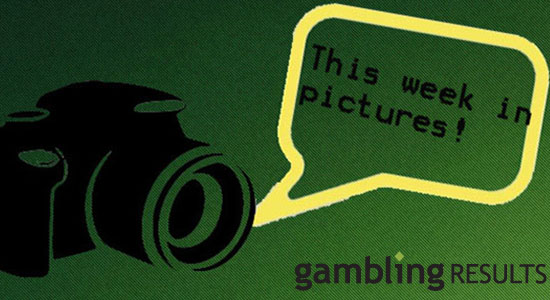
During the week between September 30th and October 6th, the world sizzled with events but mostly in Asia.
Hong Kong had people out in the streets marching for democracy, Japan had another volcano erupting and North Korea had one supreme and omnipresent leader missing from spotlights.
Westerners on the other hand developed ‘Good2Go’, a ‘sex consent’ application and welcomed the first ‘womb transplant’ baby born in Sweden. A play starring Lindsay Lohan opened in London and Formula 1 has a pilot of only 17 who had a rather short starting-race. But there will be better Grand Prix ahead for him.
In the meantime, gambling abounded of news and they came with pics. Take a look!
1. Another Trump Entertainment Resorts piece has fallen. Atlantic City Mayor, Don Guardian has rejected a proposal meant to revive Trump Taj Mahal Casino Resort.

2. Simon Perfitt, a former UK gambling addict, revealed how he lost GBP 200,000 on the controversial Fixed-odds betting terminals.
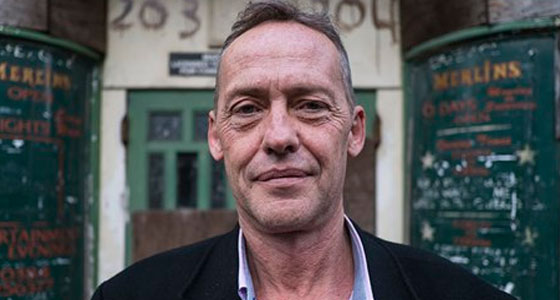
3. All bets are off! Rumors about the Duchess of Cambridge having twins made online sportsbooks re-think their betting strategies.

4. Brookfield Asset Management bought Atlantic City’s Revel Casino, which went bankrupt earlier this year. Perhaps this time, fortune will smile upon the gambling venue.
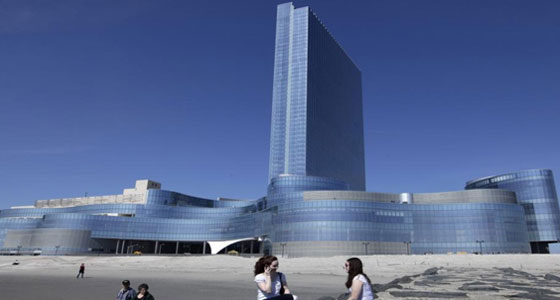
5. The Crockfords club claimed that Phil Ivey used ‘edge sorting’ while playing baccarat and they refuse to pay him his winnings, labeling the technique “criminal”.
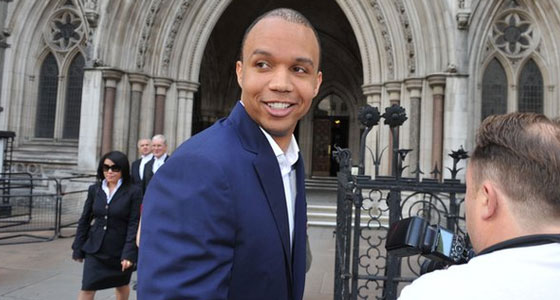
6. Trump Taj Mahal Casino owners considered ending payments to the union pension plan as a key point in the company’s restructuring strategy, but court denied them approval on the matter.
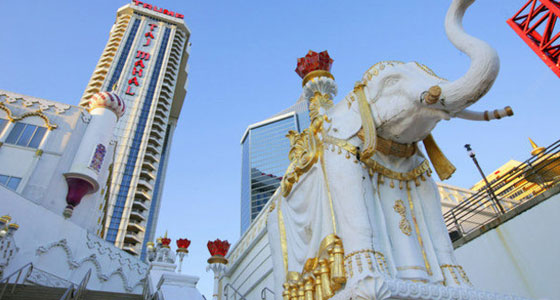
7. Casinos in Goa decided to stop gambling activities on Gandhi’s Birthday but they’re still welcoming guests willing to attend the entertainment programs and taste the food in the restaurants.
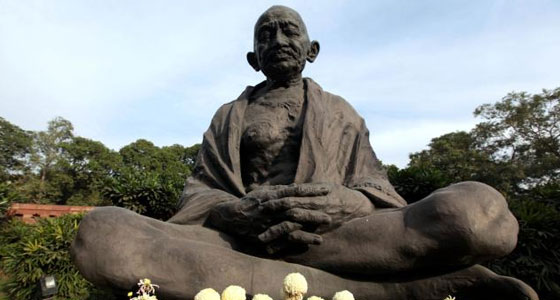
Gambling news are always fresh. Check our top stories section!



During the week between September 30th and October 6th, the world sizzled with events but mostly in Asia.
Hong Kong had people out in the streets marching for democracy, Japan had another volcano erupting and North Korea had one supreme and omnipresent leader missing from spotlights.
Westerners on the other hand developed ‘Good2Go’, a ‘sex consent’ application and welcomed the first ‘womb transplant’ baby born in Sweden. A play starring Lindsay Lohan opened in London and Formula 1 has a pilot of only 17 who had a rather short starting-race. But there will be better Grand Prix ahead for him.
In the meantime, gambling abounded of news and they came with pics. Take a look!
1. Another Trump Entertainment Resorts piece has fallen. Atlantic City Mayor, Don Guardian has rejected a proposal meant to revive Trump Taj Mahal Casino Resort.

2. Simon Perfitt, a former UK gambling addict, revealed how he lost GBP 200,000 on the controversial Fixed-odds betting terminals.

3. All bets are off! Rumors about the Duchess of Cambridge having twins made online sportsbooks re-think their betting strategies.

4. Brookfield Asset Management bought Atlantic City’s Revel Casino, which went bankrupt earlier this year. Perhaps this time, fortune will smile upon the gambling venue.

5. The Crockfords club claimed that Phil Ivey used ‘edge sorting’ while playing baccarat and they refuse to pay him his winnings, labeling the technique “criminal”.

6. Trump Taj Mahal Casino owners considered ending payments to the union pension plan as a key point in the company’s restructuring strategy, but court denied them approval on the matter.

7. Casinos in Goa decided to stop gambling activities on Gandhi’s Birthday but they’re still welcoming guests willing to attend the entertainment programs and taste the food in the restaurants.

Gambling news are always fresh. Check our top stories section!


Taj Mahal Casino to Continue Paying Pensions to Union Members
The management of Trump Taj Mahal sought approval to end payments to the casino union pension fund.
US Bankruptcy Judge Kevin Gross in Wilmington, Delaware, said he didn’t have the authority to allow the gambling company to reject part of its collective bargain agreement, but added that he would consider a request to reject the agreement as a whole. The judge is expected to make a decision on a hearing scheduled for October 14.
Obtaining approval to end pension payments was a key requirement of businessman Carl Icahn, offered to spend $100 million to rescue the now-bankrupt casino. However, the deal comes with considerable strings attached, as the businessman expects tax breaks, $25 million in funds from a state agency, as well as givebacks from the workers’ union. Experts believe it is unlikely that his proposal will be accepted, considering New Jersey’s current taxation policy and gambling laws.
Unless a buyer is found, the Trump Taj Mahal Casino and Resort will become the fifth casino to close this year in Atlantic City. Trump Entertainment has threatened to shut it down at the middle of November.
Bloomberg: Trump Casinos Loss on Pension Threatens Bankruptcy Plan
According to the latest gambling news, the owner of Atlantic City’s Taj Mahal Casino was denied court approval to stop contributing to the union pension plan. The request was a key point in the company’s restructuring strategy, as Trump Entertainment is struggling to recover from bankruptcy.
Judge Kevin Gross ruled that eliminating just the pension from the collective-bargaining agreement is not an option. The measure would violate bankruptcy code, which states that a contract has to be considered as a whole.
“The court does not have authority to reject a portion of a CBA,” Gross ruled. However, Trump Entertainment’s efforts to scrap the entire union deal – which includes pensions, too – will be reconsidered at another hearing, on October 14.
The company is trying to figure out how to solve its financial difficulties and save the Taj Mahal. Court filings have revealed that the union contract costs about $15 million a year in health, welfare and other benefits, and an additional $5 million in pension payments. But if the casino doesn’t find a buyer or a way to cut costs, closing will be inevitable.
Trump Entertainment claims obtaining concessions from the union is “absolutely critical” in the restructuring process.
NY Post: Carl Icahn might save Trump Taj Mahal under right conditions
Businessman Carl Icahn is ready to save the Trump Taj Mahal from bankruptcy, but only under certain circumstances. The investor said he was willing to invest $100 million in the Atlantic City casino, provided the unions and local authorities are prepared to make some big concessions.
Trump Entertainment Resorts, the owner of the ailing casino, was forced to file for bankruptcy on September 9, but has come up with a restructuring plan that needs Icahn’s money, the union’s cooperation and the collaboration of Atlantic City authorities to succeed. If all plans fail, the closure of the casino will result in the loss of more than 4,000 jobs.
Trump Entertainment Resorts owns two casinos in the gambling Mecca, and both of them have failed. The Trump Plaza was closed recently, and the situation of the Taj Mahal is not too optimistic either. The business is projected to lose $7 million every month, even with just one casino in operation, and that figure doesn’t include debt payments to Icahn or property taxes.
In order to get out of the financial mess, the company wants to stop paying roughly $10,000 a year for each union employee, and to stop pension contributions.
GamingZion: Brookfield is Topping Bidders for the Revel in Atlantic City
It seems like Atlantic City financial problems are the highlight of American news, as casinos shut down one after the other in the former gambling kingdom. The Showboat closed at the beginning of September and the Revel is still hoping to find a way out of the mess it got itself into.
The casino opened its doors to customers just two years ago, and it has already filed for bankruptcy twice. An expensive investment that cost $2.4 billion to build, the venue has never succeeded in becoming a profitable business.
While the gambling business has failed, there might still be hope for the building that housed all those gaming tables and poker rooms. The casino’s owners said they intended to sell it to a customer who would be able to keep the building in use.
An auction held last Wednesday awarded the property to Brookfield Asset Management, after the company trumped Florida real estate developer Glenn Straub’s $90 million bid. The businessman threatened to challenge the outcome of the auction in court.
The management of Trump Taj Mahal sought approval to end payments to the casino union pension fund.
US Bankruptcy Judge Kevin Gross in Wilmington, Delaware, said he didn’t have the authority to allow the gambling company to reject part of its collective bargain agreement, but added that he would consider a request to reject the agreement as a whole. The judge is expected to make a decision on a hearing scheduled for October 14.
Obtaining approval to end pension payments was a key requirement of businessman Carl Icahn, offered to spend $100 million to rescue the now-bankrupt casino. However, the deal comes with considerable strings attached, as the businessman expects tax breaks, $25 million in funds from a state agency, as well as givebacks from the workers’ union. Experts believe it is unlikely that his proposal will be accepted, considering New Jersey’s current taxation policy and gambling laws.
Unless a buyer is found, the Trump Taj Mahal Casino and Resort will become the fifth casino to close this year in Atlantic City. Trump Entertainment has threatened to shut it down at the middle of November.
Bloomberg: Trump Casinos Loss on Pension Threatens Bankruptcy Plan
According to the latest gambling news, the owner of Atlantic City’s Taj Mahal Casino was denied court approval to stop contributing to the union pension plan. The request was a key point in the company’s restructuring strategy, as Trump Entertainment is struggling to recover from bankruptcy.
Judge Kevin Gross ruled that eliminating just the pension from the collective-bargaining agreement is not an option. The measure would violate bankruptcy code, which states that a contract has to be considered as a whole.
“The court does not have authority to reject a portion of a CBA,” Gross ruled. However, Trump Entertainment’s efforts to scrap the entire union deal – which includes pensions, too – will be reconsidered at another hearing, on October 14.
The company is trying to figure out how to solve its financial difficulties and save the Taj Mahal. Court filings have revealed that the union contract costs about $15 million a year in health, welfare and other benefits, and an additional $5 million in pension payments. But if the casino doesn’t find a buyer or a way to cut costs, closing will be inevitable.
Trump Entertainment claims obtaining concessions from the union is “absolutely critical” in the restructuring process.
NY Post: Carl Icahn might save Trump Taj Mahal under right conditions
Businessman Carl Icahn is ready to save the Trump Taj Mahal from bankruptcy, but only under certain circumstances. The investor said he was willing to invest $100 million in the Atlantic City casino, provided the unions and local authorities are prepared to make some big concessions.
Trump Entertainment Resorts, the owner of the ailing casino, was forced to file for bankruptcy on September 9, but has come up with a restructuring plan that needs Icahn’s money, the union’s cooperation and the collaboration of Atlantic City authorities to succeed. If all plans fail, the closure of the casino will result in the loss of more than 4,000 jobs.
Trump Entertainment Resorts owns two casinos in the gambling Mecca, and both of them have failed. The Trump Plaza was closed recently, and the situation of the Taj Mahal is not too optimistic either. The business is projected to lose $7 million every month, even with just one casino in operation, and that figure doesn’t include debt payments to Icahn or property taxes.
In order to get out of the financial mess, the company wants to stop paying roughly $10,000 a year for each union employee, and to stop pension contributions.
GamingZion: Brookfield is Topping Bidders for the Revel in Atlantic City
It seems like Atlantic City financial problems are the highlight of American news, as casinos shut down one after the other in the former gambling kingdom. The Showboat closed at the beginning of September and the Revel is still hoping to find a way out of the mess it got itself into.
The casino opened its doors to customers just two years ago, and it has already filed for bankruptcy twice. An expensive investment that cost $2.4 billion to build, the venue has never succeeded in becoming a profitable business.
While the gambling business has failed, there might still be hope for the building that housed all those gaming tables and poker rooms. The casino’s owners said they intended to sell it to a customer who would be able to keep the building in use.
An auction held last Wednesday awarded the property to Brookfield Asset Management, after the company trumped Florida real estate developer Glenn Straub’s $90 million bid. The businessman threatened to challenge the outcome of the auction in court.
Crockfords Says Ivey Cheated, but the Poker Pro Wants his GBP7.7 Million
A British gambling venue is refusing to pay poker player Phil Ivey his GBP7.7 million in winnings, claiming that he won by cheating.
Although a talented poker player, American gambler Phillip Ivey doesn’t shy away from other casino games either. Like high-stake baccarat, for example. The game brought him almost GBP8 million in winnings in August 2012, when he risked as much as GBP1 million of his own money at a casino in London.
The Crockfords club – the venue where Ivey won the money over his two-day visit – has refused to pay out claiming that the poker player had cheated and duped the croupier, with the help of his companion Cheung Yin Sun.
The American gambler responded by slapping the casino with a lawsuit. While admitting that he had used a technique known as edge sorting, which allows players to predict the order of the cards, Ivey and his lawyers firmly believe that this is nothing but a legitimate strategy that casinos can guard against.
Mirror Online: Casino won’t pay out £7.7MILLION winnings to ‘cheating’ poker star Phillip Ivey
Richard Spearman, who represents the professional poker player, said Ivey should not be held responsible for the casino’s “mistake”.
“The technique of edge sorting involves nothing more than using information that is available to any player by viewing the backs of the cards… and making requests of the casino, which it is open to the casino to accept or refuse, as to the manner in which play is conducted.”
Spearman claims that it was the gambling venue’s mistake that this turned into an advantage for Ivey, while Christopher Pymont, who represents the casino, continued to say the scheme was quite possibly “criminal”.
According to the latest gambling news, the barrister accused the poker player of using his companion to cheat. Cheung Yin Sun allegedly spoke to the dealer in Cantonese to help keep the scheme “covert” from the rest of the staff, who spoke English.
The casino staff examined the CCTV footage, interrogated the staff, and then decided not to send Ivey the money.
Belfast Telegraph: Champion poker player Phil Ivey ‘stitched up’ London casino in £7.7m winning streak, court hears
One of the best poker players in the world, Phil Ivey, was accused of having “stitched up” a reputable London casino by taking advantage of a flaw in playing cards. The poker pro sued the gambling venue, which refused to pay him the GBP7.7 million he had won in two days.
Ivey allegedly created an “air of superstition”. He insisted on wearing a lucky hat, picked a lucky Asian card dealer, and a special pack of cards. While the game of baccarat requires little skill, all this helped him tip the odds in his favor, said the casino management.
Ivey admitted that he turned a minor flaw in the cards to his advantage, but says the casino did not take the proper security measures and went along with all his requests without questioning them. This is why he exploited the casino’s failures.
“Putting it bluntly, he played, he won and they ought to pay up,” said Richard Spearman, his counsel.
Casino staff picked up on Ivey’s unusual behavior after he asked the dealer to turn around some of the cards, “like that made any difference”. But employees figured it was nothing but a superstition. “It did make a difference. They just didn’t realize,” Spearman explained.
The counsel added that Ivey’s winning streak could have been stopped at any moment simply by changing the cards, or increasing the security on the dealer, but the casino failed to take these precautions. The customer “regards this as entirely fair play,” Spearman said, adding: “If a casino fouls up from start to finish that’s the gamblers good fortune.”
On the other hand, Christopher Pymont, counsel for the casino, considers the gambler’s actions to be “highly immoral and dishonest”. “The whole point is to stitch up the casino, to fix it, when you know it’s in ignorance of what you’re doing,” he argued.
The case is expected to last a week.
Daily Mail: Nine-time world poker champion Phil Ivey accused of cheating Atlantic City casino out of $9.6MILLION ‘using defective card trick’
This is not the first time Phil Ivey has taken advantage of defective cards to turn the odds in his favor, at the same table game. A casino in Atlantic City has sued the professional poker player after he won $9.6 million, claiming that he got the money by cheating.
Ivey and an associate allegedly exploited a defect in cards to win the money, on four occasions between April and October 2012. The cards were manufactured by Gemaco Inc., a company from Kansas City, and were defective because they didn’t have a uniform pattern on the back.
According to the lawyers who represent the gambling venue, the technique of edge sorting is forbidden under New Jersey gambling laws. Ivey and his companion allegedly instructed a dealer to flip cards in particular ways, so they could tell whether it was a desirable card or not.
A British gambling venue is refusing to pay poker player Phil Ivey his GBP7.7 million in winnings, claiming that he won by cheating.
Although a talented poker player, American gambler Phillip Ivey doesn’t shy away from other casino games either. Like high-stake baccarat, for example. The game brought him almost GBP8 million in winnings in August 2012, when he risked as much as GBP1 million of his own money at a casino in London.
The Crockfords club – the venue where Ivey won the money over his two-day visit – has refused to pay out claiming that the poker player had cheated and duped the croupier, with the help of his companion Cheung Yin Sun.
The American gambler responded by slapping the casino with a lawsuit. While admitting that he had used a technique known as edge sorting, which allows players to predict the order of the cards, Ivey and his lawyers firmly believe that this is nothing but a legitimate strategy that casinos can guard against.
Mirror Online: Casino won’t pay out £7.7MILLION winnings to ‘cheating’ poker star Phillip Ivey
Richard Spearman, who represents the professional poker player, said Ivey should not be held responsible for the casino’s “mistake”.
“The technique of edge sorting involves nothing more than using information that is available to any player by viewing the backs of the cards… and making requests of the casino, which it is open to the casino to accept or refuse, as to the manner in which play is conducted.”
Spearman claims that it was the gambling venue’s mistake that this turned into an advantage for Ivey, while Christopher Pymont, who represents the casino, continued to say the scheme was quite possibly “criminal”.
According to the latest gambling news, the barrister accused the poker player of using his companion to cheat. Cheung Yin Sun allegedly spoke to the dealer in Cantonese to help keep the scheme “covert” from the rest of the staff, who spoke English.
The casino staff examined the CCTV footage, interrogated the staff, and then decided not to send Ivey the money.
Belfast Telegraph: Champion poker player Phil Ivey ‘stitched up’ London casino in £7.7m winning streak, court hears
One of the best poker players in the world, Phil Ivey, was accused of having “stitched up” a reputable London casino by taking advantage of a flaw in playing cards. The poker pro sued the gambling venue, which refused to pay him the GBP7.7 million he had won in two days.
Ivey allegedly created an “air of superstition”. He insisted on wearing a lucky hat, picked a lucky Asian card dealer, and a special pack of cards. While the game of baccarat requires little skill, all this helped him tip the odds in his favor, said the casino management.
Ivey admitted that he turned a minor flaw in the cards to his advantage, but says the casino did not take the proper security measures and went along with all his requests without questioning them. This is why he exploited the casino’s failures.
“Putting it bluntly, he played, he won and they ought to pay up,” said Richard Spearman, his counsel.
Casino staff picked up on Ivey’s unusual behavior after he asked the dealer to turn around some of the cards, “like that made any difference”. But employees figured it was nothing but a superstition. “It did make a difference. They just didn’t realize,” Spearman explained.
The counsel added that Ivey’s winning streak could have been stopped at any moment simply by changing the cards, or increasing the security on the dealer, but the casino failed to take these precautions. The customer “regards this as entirely fair play,” Spearman said, adding: “If a casino fouls up from start to finish that’s the gamblers good fortune.”
On the other hand, Christopher Pymont, counsel for the casino, considers the gambler’s actions to be “highly immoral and dishonest”. “The whole point is to stitch up the casino, to fix it, when you know it’s in ignorance of what you’re doing,” he argued.
The case is expected to last a week.
Daily Mail: Nine-time world poker champion Phil Ivey accused of cheating Atlantic City casino out of $9.6MILLION ‘using defective card trick’
This is not the first time Phil Ivey has taken advantage of defective cards to turn the odds in his favor, at the same table game. A casino in Atlantic City has sued the professional poker player after he won $9.6 million, claiming that he got the money by cheating.
Ivey and an associate allegedly exploited a defect in cards to win the money, on four occasions between April and October 2012. The cards were manufactured by Gemaco Inc., a company from Kansas City, and were defective because they didn’t have a uniform pattern on the back.
According to the lawyers who represent the gambling venue, the technique of edge sorting is forbidden under New Jersey gambling laws. Ivey and his companion allegedly instructed a dealer to flip cards in particular ways, so they could tell whether it was a desirable card or not.
Tags: cheating, Cheung Yin Sun, Christopher Pymont, Crockfords club, gambling laws, Gemaco Inc, Latest gambling news, phil ivey, Richard Spearman

